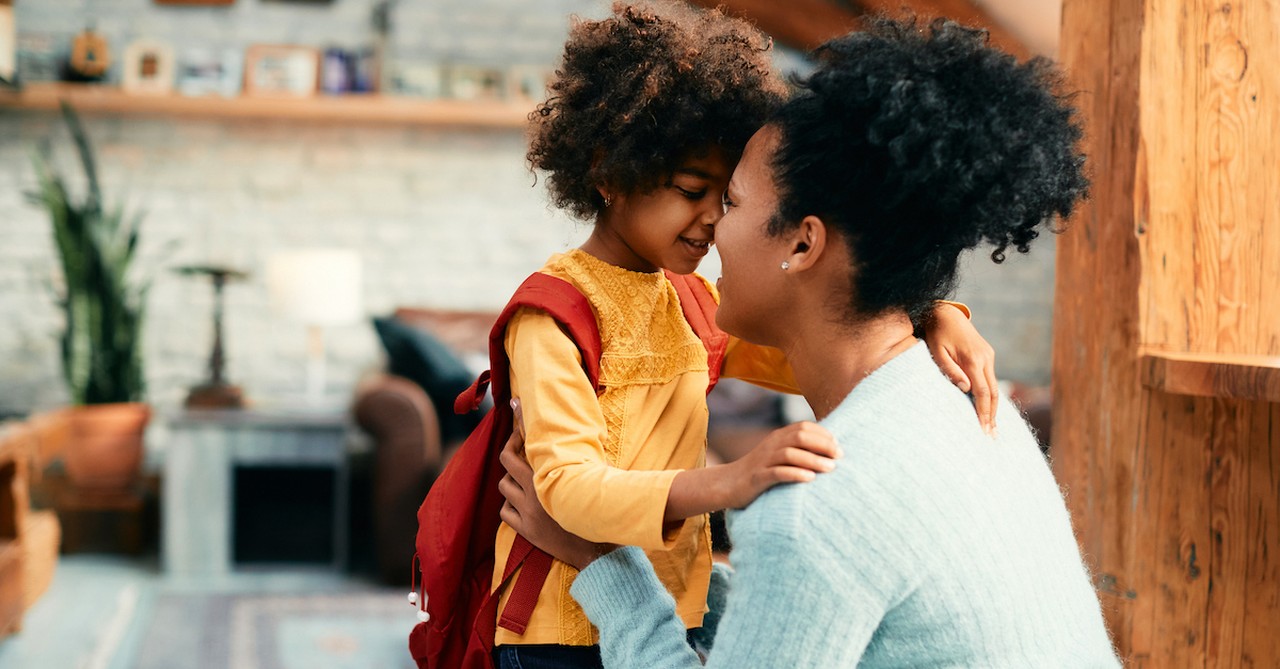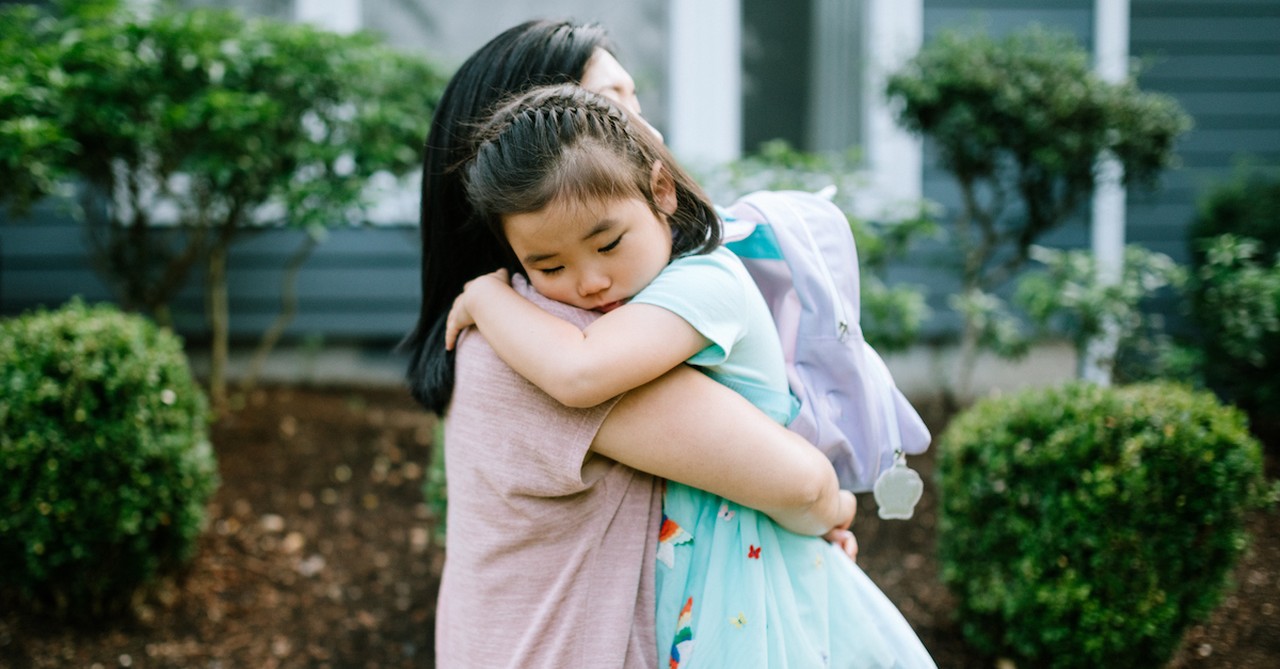3 Ways to Prepare Your Child for Pre-K

If school hasn't already started, it's coming—fast! And for those of you with small children, you could be embarking on their first day of half-day or full-day Pre-K. Or, as my four-year-old was very insistent, we call it "4-K"— because four years and school is a very grown-up place to be.
But how do we prepare our child for Pre-K? And not just the first day, but the first month, the first semester, the first year. What are the challenges? What can we as parents expect to navigate through these next several months? Are there steps we can take throughout the year to help our little ones with the culture shock of the classroom versus the living room?
One of the things that we struggle with as parents, especially this first year of school, is that our children will be outside the safety zone of our nest at home. That means they will begin to face the infant-sized trials that will eventually become adult-sized as they age. The stages of being a baby and a toddler are over. We have now entered the era of navigating issues with our children, and that territory can be as new for us as it will be for them.
You would hope it would be this way, but unfortunately, your little one will face the newness of a social environment that may not be altogether welcoming. Other children with personalities that collide, attitudes that affect, and behaviors that are unacceptable in your home will be part of your child's everyday life now. The routine from home to school will be markedly different, and while it's not necessarily a negative, it can have a huge emotional impact on the little ones. Their teacher may become their next best safe adult and emotional comforter, or they may feel ostracized and resistant to their teacher. This will be the first time they are being "assessed" by someone other than their parent, and the subtleties of this criticism—even if constructive and pleasant—will begin to shape how they receive instruction and view their personal performance and abilities.
And then, there may also be the very real impact of leaving home for three to seven hours. This means no mommy or daddy nearby or no comforting grandparents or caregivers that they've been accustomed to. No. They are entering what to them is a big new universe of alien ideas, strangers, and belongings. Separation anxiety can be a real thing. It may not be an issue the first day or even the first week. You may find that separation becomes a deeper issue the longer the school year progresses and the more the child realizes that this new routine isn't changing anytime soon.
So what can we do to prepare our kiddos for Pre-K?
1. Reassurance through tangible items.

1. Reassurance through tangible items.
SLIDE 1 OF 3
Because your child is entering the unfamiliar until it becomes familiar, they may need the familiar. It's an awkward sentence, but true, nonetheless. Familiarity is significant when it comes to security. Many parents find it a bad form to allow their child to take a comfort item to school. Be it a stuffed animal, a small blanket, or a toy, these items are often perceived as a hindrance to growing up and learning to be independent. While there is truth to this if carried on for too long, during the adjustment stage, having an item of familiarity that also gives some emotional security can go a long way in reassuring your child that this new place isn't bad, and they are not alone.
For example, my daughter had a stuffed animal she took to school many days that first year of Pre-K. As she moved into Kindergarten, we taught her to stand more independently, as she had a year of memories to look back on and be reassured that everything was okay and safe. But for the first few weeks and months, "Georgie" was in her backpack with the rule that he was not allowed to come out. This way, it wasn't a tribulation for the teacher, but our daughter knew her stuffed friend was nearby. She could get snuggles and kisses during break when she could go to her cubby. One time, during an injury, her ever-understanding teacher allowed her to retrieve Georgie for comfort while Band-Aids were applied and tears were dried.
Unless there are strict regulations against this practice, consider discussing this option with their teacher to make sure it won't pose a problem for them. If not, realize the familiar can be a huge boost to a young one's self-confidence when they march into the school for the first year of their life.
Photo credit: ©GettyImages/RyanJLane
2. Reassurance through personalization.

2. Reassurance through personalization.
SLIDE 2 OF 3
Their teacher will most likely be well prepared to help your child discover their own place within the classroom. Their cubby, desk or seat, specific color or identifier, and so on. You can reaffirm this with your child by even adopting some of this in your home. Let the child—if they desire—bring home the concepts of personalization and allow them to recreate them in their safe place.
For example, my daughter quickly discovered her identity as the teacher's helper to pick up pencils and crayons. This was her "job," and she took great pride in it. Because it helped her little mind tie the safety of home to the safety of school, we allowed it to be her "job" at home as well. We advised our other child/children to allow our daughter to "do her job" and pick up the crayons. Our daughter was very proud to be in charge of her position and because it overflowed from school to home, it also helped her personalize her school experience into something positive. Because we reinforced it as parents, it also reinforced the decision-making and authority of her teacher and created the unconscious understanding that her teacher was a safe person from whom to take instruction—the same as mommy and daddy.
3. Reassurance through relationships.

3. Reassurance through relationships.
SLIDE 3 OF 3
This can be tough, especially if your little one is prone to separation anxiety because introducing the concept of faith is tough for little hearts to grasp. But going to school is a big step of faith for them; they're trusting that you—their parent—will be there at the end of their school day to pick them up. So, it is important to help them remain reassured of the strength of your relationship and that they are not losing you.
One of the ways this can be accomplished is by drawing the parallels between how Jesus stays with them, even when you need to go for the day, but that you also come back. Be cautious about having multiple people lined up for pickup. Until your child has adjusted, consider arranging your schedule so that you are there for pick up at the end of their school day. This reassures them that you've left them in God's care, but you're also making sure you're there to welcome them back into your care.
Pre-K can be such an exciting time for your child, and if you're blessed, your child will easily adapt to the classroom, their teacher, and the other kids. But in the event that their struggle is more palpable, hopefully, these three tips that made a significant difference in our experience will do the same for you!
Jaime Jo Wright is an ECPA and Publisher’s Weekly bestselling author. Her novel “The House on Foster Hill” won the prestigious Christy Award and she continues to publish Gothic thrillers for the inspirational market. Jaime Jo resides in the woods of Wisconsin, lives in dreamland, exists in reality, and invites you to join her adventures at jaimewrightbooks.com and at her podcast madlitmusings.com where she discusses the deeper issues of story and faith with fellow authors.
Originally published September 02, 2024.









